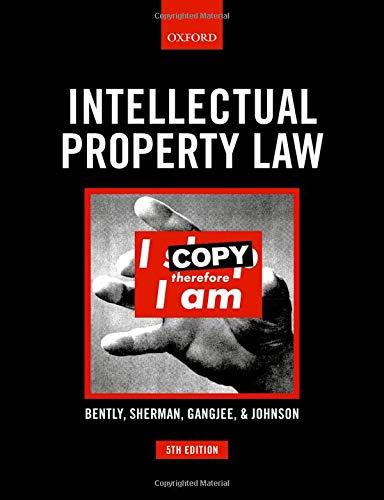Question
1.Explain the purpose of the Australian Consumer Law and how it protects consumers' rights. 2.Outline the consumer guarantees that apply for both products and services
1.Explain the purpose of the Australian Consumer Law and how it protects consumers' rights.
2.Outline the consumer guarantees that apply for both products and services under the Australian Consumer Law.
3.List the types of products and services covered by the consumer guarantee.
4.Explain why it is unlawful for a retailer to display a sign to say that no refunds are provided.
5.Discuss whether consumers are legally entitled to a refund or replacement if they change their mind when buying a product or service.
6.Discuss the statement below in relation to guidelines about consumer guarantees. Provide an example to illustrate your answer.
"Some suppliers or manufacturers tell the consumer an extended warranty provides extra protection, which the consumer would not have unless they buy it."
7.Explain what information is commonly found in an organisation's complaints policy and procedure.
8.List at least two benefits of an effective complaint-handling system for businesses and consumers and the standard steps that you would use to effectively deal with a customer complaint.
9.A retailer wishes to establish a consistent welcome procedure for sales staff to follow when a potential client enters the sales room. Document, using bullet points, a standard procedure that the salespeople could follow.
10.Explain the concept of service standards and their importance. Identify two examples of services standards.
11.Explain why a company committed to best practice customer services may choose to measure its service standards.
12.Explain the concept of public relations as a method of marketing communication. In your answer, explain how it can be used as a form of product and/or service promotion.
13.Describe five methods through which a company can promote its products.
14.Explain how customer service can impact on the public relations image of a company.
15.Explain how verbal communication barriers with customers can be handled effectively.
16.Explain how you can overcome barriers to communication with customers who are hearing impaired.
17.Explain how you can overcome barriers to communication with customers who are sight impaired.
18.Outline four key ways of providing excellent customer service.
19.Explain why an unhappy customer is not good for business.
20.Explain the importance of understanding customer behaviour and two techniques that can be used to analyse customer behaviour.
21.Explain three research methods that a business could use to find out about customer needs.
22.Explain the importance of monitoring complaints, including how keeping records of complaints can help the organisation better its customer service approach.
23.Explain the purpose of a CRM and how it can help organisations manage and improve their customer service information and relationships.
24.Identify two strategies that an organisation can use to gather feedback from its customers.
25.Social media is a powerful tool. Explain how an organisation can use it to monitor and manage customer service relationships.
26.Explain two further strategies that can be used to monitor, manage and introduce ways to improve customer service relationships.
Step by Step Solution
There are 3 Steps involved in it
Step: 1

Get Instant Access to Expert-Tailored Solutions
See step-by-step solutions with expert insights and AI powered tools for academic success
Step: 2

Step: 3

Ace Your Homework with AI
Get the answers you need in no time with our AI-driven, step-by-step assistance
Get Started


